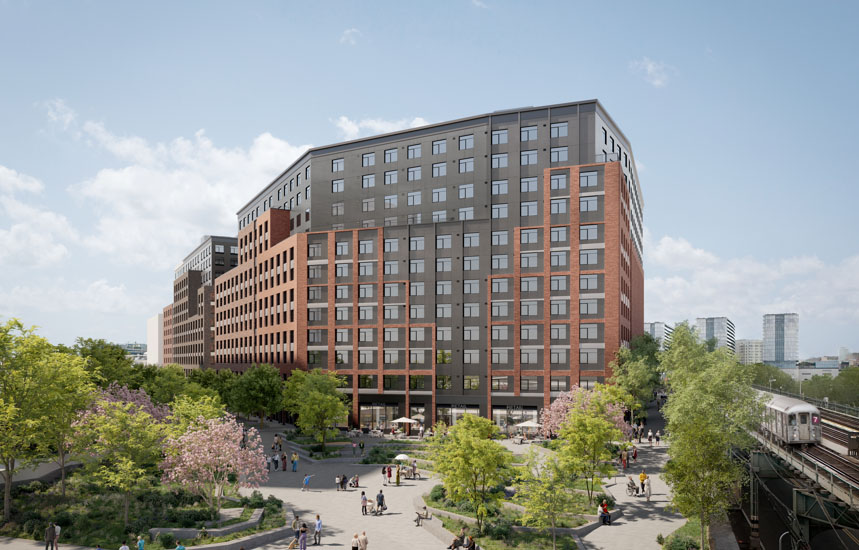News:
Owners Developers & Managers
Posted: October 4, 2007
Re-evaluating your EAP - Are your buildings and your tenants prepared?
In light of the summer's steam pipe explosion near Grand Central Station, renewed concerns about the city's aging infrastructure and the ongoing threat of terrorism, building owners and managers need to ensure that their Emergency Action Plans (EAPs) are filed with the NYC Fire Department and to step up the training and drills to prepare buildings' inhabitants for a worst case scenario. The required EAPs, accompanied by detailed floor plans that identify stairwells, evacuation routes and inbuilding relocation areas or safe areas are intended to prepare occupants for non-fire emergency situations such as explosions or other accidents (power outages, nuclear plant leaks), terrorist attacks and/or natural disasters. But the best plan is useless if certain steps are not taken to make sure that it will and can be followed.
Owner/managers need to ask themselves and their staffs: Will the EAP do everything possible to help people survive an attack or a disaster? If an event causes people to stay inside (for example, if the outdoor air might be asbestos-laden as was initially feared this summer) anywhere from a few hours to several days, have provisions been made to ensure adequate food supplies and drinkable water? Is there first aid equipment and is it easily accessible? Is there at least one automated external defibrillator (AED) per floor and have people been trained in its use? Is the emergency equipment available and clearly identified? Owners/managers should take the lead in setting up and training teams to prepare tenants to handle emergencies.
Large employers (i.e. building tenants) are creating Company Emergency Response Teams, modeled after FEMA's concept of Community Emergency Response Teams (CERTs). Volunteers are trained to act prior to the arrival of the fire or police departments. In a major emergency, the professional first responders may not appear at a building for hours… or even days. Team members receive 30 hours of training in topics including home and workplace preparedness, fire safety, emergency medical operations, terrorism and, in New York City, urban environmental awareness. Companies purchase the necessary emergency equipment and sponsor the training,which is conducted by certified professionals.
Even though the law requires EAPs only for office buildings, all buildings including rental apartments, condos and co-ops should voluntarily create EAPs and train a group of residents and management staff members in emergency preparedness. Residents need building-specific information about how best to evacuate and where to shelter in their apartment or another part of the building.
Of course, the panic factor must always be taken into account. Can behavior change if our lives depend on our ability to adapt? A generation ago, if someone yelled"fire" people may have headed for the elevators. No more. Those who live and work in high-rise buildings generally know that an elevator can become a death chamber in a fire. But will New Yorkers be able to modify their behavior to respond to new threats? Running into the streets when there's an explosion outside may be exactly the wrong response. Staying inside, and relocating to a safe zone in the building, may be a much better response. It may take a generation - or a serious event - to alter the impulse to flee a building's confines, but through training and drills, people will get the message.
William Morelli is the executive vice president of Homeland Safety Consultants, Inc., New York, N.Y.
MORE FROM Owners Developers & Managers
Related Cos. and Sterling Equities open housing lottery for Willets Point Commons
Queens, NY Queens Development Group (QDG) – a joint venture between Related Companies and Sterling Equities – in partnership with the New York City Department of Housing Preservation & Development

Quick Hits
Columns and Thought Leadership

The CRE content gap: Why owners and brokers need better digital narratives in 2026 - by Kimberly Zar Bloorian
As we head into 2026, one thing is clear: deals aren’t won by who has the best asset; they’re won by who presents it best. Yet many owners, operators, and brokers are entering the new year with outdated photos, inconsistent branding, and limited digital presence. This

Strategies for turning around COVID-distressed properties - by Carmelo Milio
Due to the ongoing pandemic, many landlords are faced with an increasing number of distressed properties. The dramatic increase in unemployment and reduction in income for so many has led to a mass exodus out of Manhattan, an increase in the number of empty rental units






.gif)


.jpg)
.gif)